South Africa
The Motor Spares Collective is an initiative designed to unlock the potential of small township businesses in South Africa in the hopes of driving growth and creating jobs in areas where unemployment and poverty are high.
Independent mechanic Themba Maseko owns a small repair shop in Tsakane township, about 50 kilometres east of Johannesburg. His job just became a lot easier, thanks to a new cooperative that gives mechanics like him quick and easy access to the spare parts they need, as well as business support and development.
The Motor Spares Collective allows them to have combined purchasing power and place orders online. For $10 a month, that allows Maseko to avoid what he says is his biggest challenge: spending hours away from his garage queuing for parts.
"Most of the time you see I can leave to go and look for something, then spend hours in the queue only to find out what whatever you're looking for is not there. So now with the Collective it's going be much easier. I make a call, they look for spares for me and then they just bring it to me so it's much better. I don't have to go and stand in the queue."
The online orders are placed with a spares shop through WhatsApp, with authentic parts delivered within 24 hours.
Sharief Bartus is a mechanic and Motor Spares Collective board member. Time, he says, is money.
"Time is a big thing for a local mechanic. We lose time for three to four hours at a spares shop, where the cars could have been worked on. So if we can bring the spares to you, you can be productive."
David vs. Goliath
South Africa’s right to repair laws allow car owners to use independent mechanics without losing their warranty. But with no access to parts, township mechanics were still at a disadvantage. Now the buying power of the collective helps them compete with large service centres -- a win for them and for their customers.
Amanda Gcabashe is managing director of UBU Investment Holdings, an economic advisory company that helped set up the collective:
"All of the mechanics we've spoken to and surveyed, everyone has to go and buy spares. So they're consumers and we're just flipping it around and saying, OK, here's a vehicle where you can become a beneficiary from your own use and consumption because in any event, you have to buy spares."
Beyond spare parts, the collective offers skills development and help with business registration and financing. It's also planning to expand by adding life insurance and other social safety net services for its members.
"All of a sudden, you open up different opportunities about saying, once we have a significant number, we are able then to say (to) insurance companies, what are the products that we can offer this community who in the past would be totally left out?" says Gcabashe.
"In our communities, if somebody is skilled with their hands, which is what a mechanic is, when they pass away, you find that then the family moves into poverty. There's no life cover. Why? Because life cover wants a pay slip from you," she adds.
South Africa has over 700,000 registered small businesses. In the townships, small businesses include hair salons, taverns, car repair shops, laundromats and others sometimes operating out of people’s homes. According to a report by financial services group Lesaka, South Africa’s informal business sector generates an estimated $33 billion in revenue, or more than 6 percent of GDP.




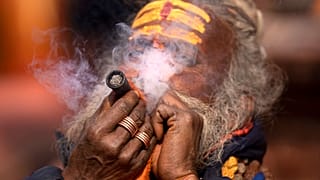
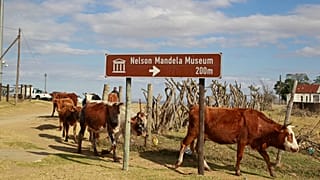
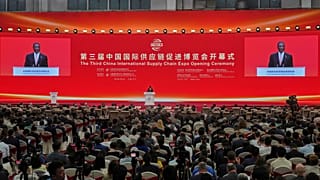
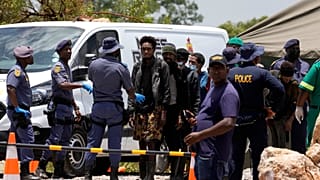
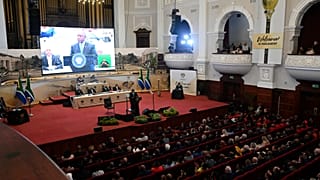
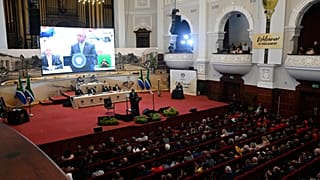
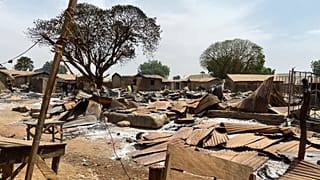

01:51
Meloni pledges deeper ties, tackling migration at 2nd Africa- Italy summit
01:51
Ramaphosa launches Nelson Mandela Rules Academy at prison
01:40
Johannesburg residents protest weeks of dry taps
01:15
South Africa reports 16% drop in rhino poaching for 2025
01:13
2026 Mining Indaba opens in Cape Town under the theme 'Stronger Together'
00:51
South Africa to withdraw troops from UN mission in DR Congo